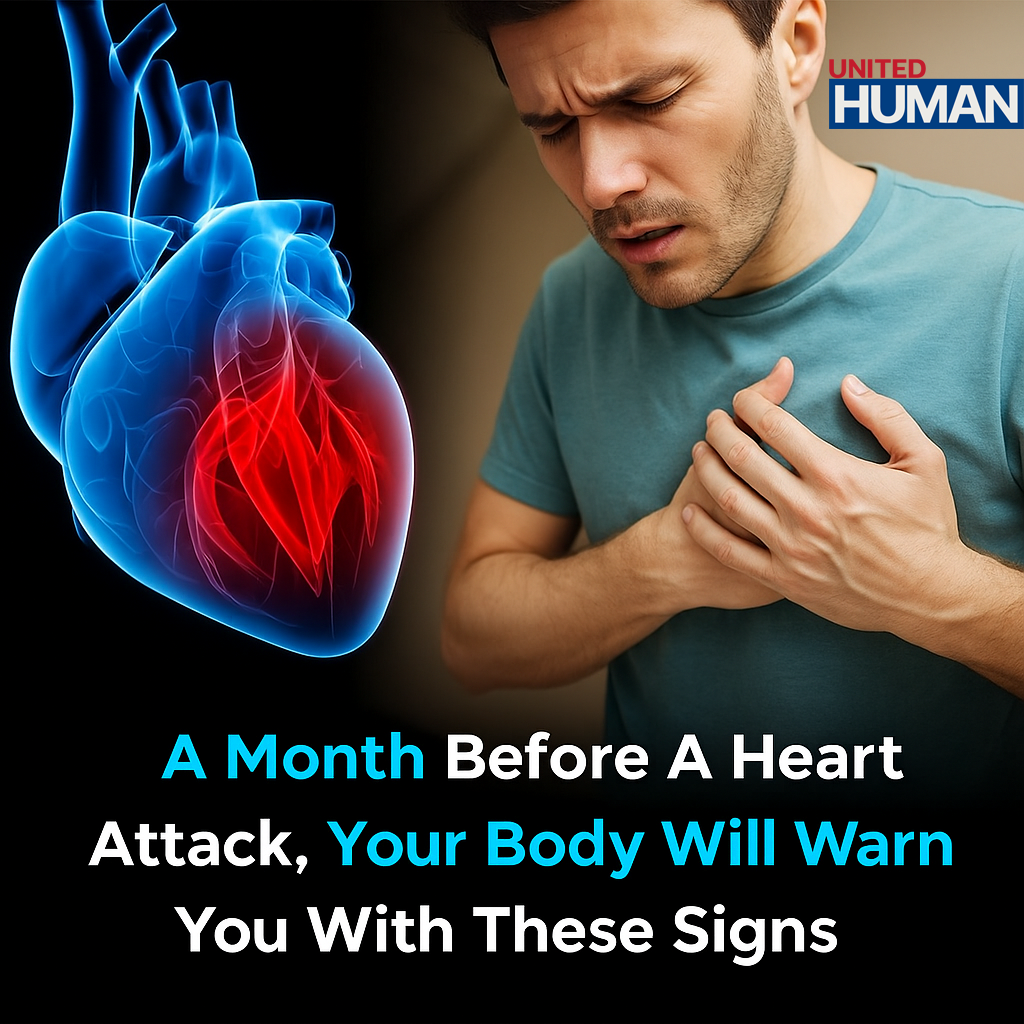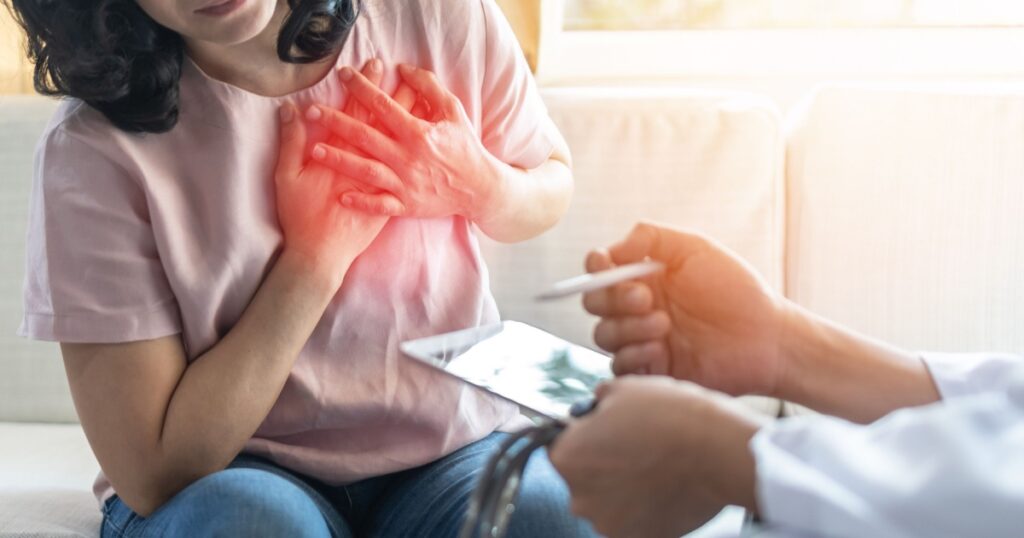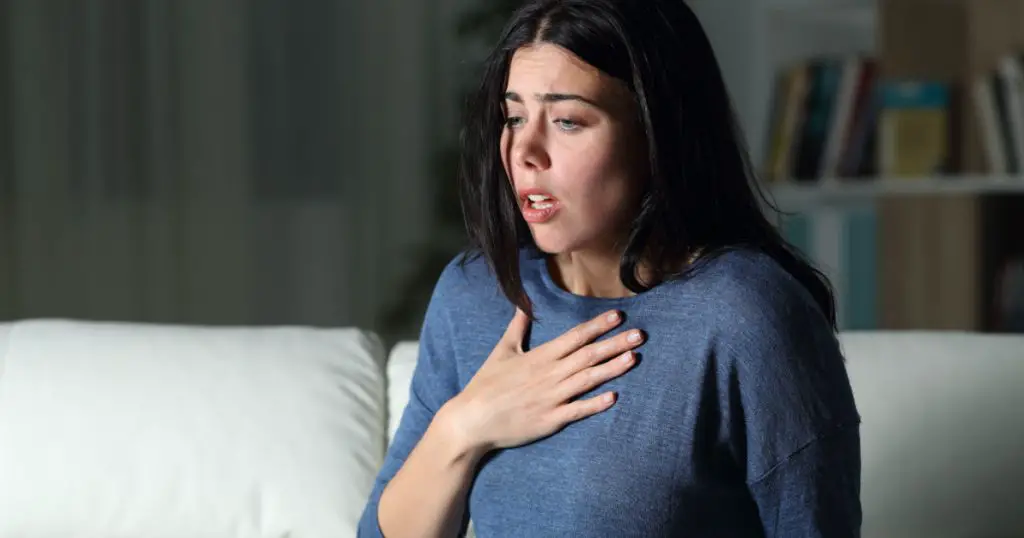When we think of heart attacks, we often imagine a sudden, dramatic chest pain. But for women—especially those over 40 or entering menopause—the warning signs can be far more subtle, and surprisingly easy to miss.

A groundbreaking study published in the Journal of Circulation revealed that nearly 80% of women who suffered a heart attack experienced symptoms up to a month before the event—but many did not recognize them as cardiac-related. And alarmingly, only 65% of women said they’d call 911 if they suspected a heart attack.
Whether you’re focused on inner wellness or glowing from the inside out, your heart health is non-negotiable. So, let’s explore the subtle signals your body may be giving you—before it’s too late.
🌿 The Most Overlooked Symptoms of a Heart Attack in Women

Here are the 9 early warning signs women often experience weeks or even a month before a heart attack. These symptoms are not always intense or obvious—but when tuned into your body, they become powerful clues.
1. Unusual Fatigue That Doesn’t Go Away
A sudden drop in energy or ongoing, unexplained fatigue is one of the most common early indicators—often brushed off as work stress, hormones, or lack of sleep.
💬 “I felt exhausted for no reason, like I hadn’t slept in days—even though I had,” shared one woman in the Circulation study.
If you're experiencing profound tiredness that doesn’t improve with rest, listen to your body.
2. Disrupted Sleep Patterns
Can’t sleep? Waking up multiple times in the night? Feeling restless, anxious, or hot in the middle of your slumber?
These sleep disturbances may be your body trying to alert you. Women who reported poor sleep in the weeks leading up to their heart attack later realized it was part of the warning pattern.
3. Unexplained Anxiety or a Feeling of Dread
A surge of anxious feelings or a persistent sense that something isn’t right—even if you can’t put your finger on it—can be a red flag.
Some women describe this as a “sense of doom,” or a heightened sensitivity to everyday stressors. When combined with fatigue or shortness of breath, anxiety may indicate a deeper cardiac concern.
4. Lightheadedness or Dizziness
Feeling faint, unsteady, or dizzy without any apparent reason could be linked to reduced blood flow—often due to heart strain.
Don’t shrug it off, especially if it’s new or paired with other symptoms like nausea or fatigue.
5. Shortness of Breath
If you’re struggling to catch your breath during everyday activities—or even while resting—this can be an early sign of heart dysfunction. You may feel winded while walking up stairs or find yourself gasping in situations that never made you breathless before.
6. Indigestion or Nausea
Some women experience a heart attack as stomach pain, heartburn, or a gassy bloated feeling. Because this can mimic digestive issues or PMS, it’s easy to overlook.
🔍 If your “indigestion” is accompanied by sweating, dizziness, or fatigue, seek immediate care.
7. Cold Sweats or Clammy Skin

Sudden cold, clammy sweating—especially when you’re not exerting yourself—can indicate cardiovascular distress.
It’s your body’s way of reacting to internal stress, and when combined with nausea or lightheadedness, it's a symptom that should never be ignored.
8. Jaw Pain or Discomfort Radiating to the Jaw, Neck, or Back
Pain that travels from your chest to your jaw, neck, shoulders, or back can be another atypical—but serious—symptom.
It may feel like tightness, pressure, or a dull ache that moves around. Many women report this type of pain instead of the classic crushing chest pain often associated with male heart attacks.
9. Chest Pressure or Burning Sensation
While chest pain is a known symptom for both genders, women often describe it differently—not as stabbing pain, but as:
-
Tightness
-
Burning
-
Fullness
-
Squeezing pressure
It may come and go or feel more like discomfort than pain. If it’s new or worsening, don’t delay—call emergency services immediately.
🌸 Why Women Over 50 Should Pay Extra Attention
As women approach menopause, estrogen levels decline—and with that, heart protection weakens. This makes women over 50 significantly more susceptible to heart disease and heart attacks.
In fact, postmenopausal women face a higher mortality rate after heart attacks than men of the same age. This makes prevention, early detection, and routine heart screenings essential.
Additional symptoms in women over 50 may include:
-
Rapid or irregular heartbeat
-
More intense sweating
-
Pain in one or both arms
-
Stomach discomfort or abdominal pain
⚠️ What Is a Silent Heart Attack?

A silent heart attack is just as damaging—but without the dramatic warning signs. Many women don’t even realize they’ve had one until they undergo routine cardiac testing.
Subtle signs of a silent heart attack may include:
-
Mild, fleeting chest or jaw discomfort
-
Shortness of breath
-
Difficulty exercising or fatigue after minimal effort
-
Clammy skin
-
Digestive upset mistaken for indigestion
According to research from Duke University Medical Center, as many as 200,000 people in the U.S. experience a silent heart attack every year—many of them women.
